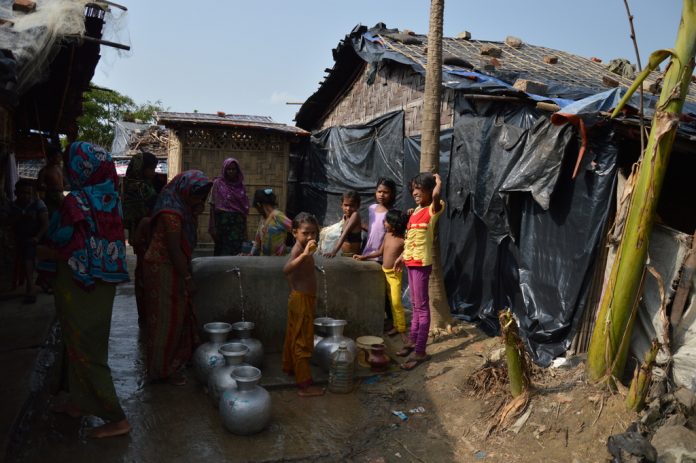The situation in Myanmar is horrific. The Rohingya people have been killed and repressed, their rights denied, their homes burned, people are starving and stuck at the border and those that have managed to flee to Bangladesh are in dire need of help. There is no change for the better so far, as the Rohingyas are unwanted everywhere.
The killings and violence must stop immediately. Those responsible must be held accountable by international tribunal. Even though an agreement has been signed between Bangladesh and Myanmar, more is needed. The agreement foresees the start of the repatriation process, but there are many concerns like the verification process, guaranteeing the safety of the people returning, where will they be returning if their homes have been burned to the ground and so on. Also I am quite worried about the wording whereby Bangladesh will immediately avail itself of the assistance by the UNCHR whereas Myanmar will only do that when needed and appropriate. There is not a word on the landmines on the border. They must be removed immediately, if needed – with the help of the international community.
Another very important topic is the citizenship issue. There needs to be a timeframe for the provision of citizenship rights and it is important that Myanmar not only restores citizenship for the Rohingyas, but actually provides it to them, since most of them have never been provided citizenship before.
Monitoring of the situation of the Rohingyas in Myanmar by human rights bodies and helping them by NGOs and relief agencies should be allowed. Humanitarian aid must continue, the European Union, its Member States and international community must increase financial and material support for the refugees and their accommodation.
One more thought – the role of Aung San Suu Kyi has been extremely disappointing as she has not been addressing this issue, but has rather been denying these atrocities. We should seriously start a discussion on the possibility of reversing international awards such as the Nobel Prize and the Sakharov Prize in these kinds of situations. It makes no sense that a person who has received such an honorary award is now also responsible for ethnic cleansing.
Even though there has been pressure and criticism from the international community concerning the Rohingya crisis, this has not stopped the Myanmar authorities from threatening and imprisoning journalists for simply doing their job. In mid-December 2017, two Reuters journalists were arrested and accused of breaching the British colonial-era Official Secrets Act. They had been working on Reuters coverage of the crisis in the Rakhine state, where the Rohingyas have suffered greatly. This example just comes to show the attitude of the Myanmar authorities and to prove that in order for the international community to get the message through, we need more than just words.
Thus, I believe we need to increase the pressure on Myanmar. The European Union should consider adopting punitive sanctions against those responsible for human rights abuses in Myanmar, broaden the existing arms embargo and suspend trade preferences and the EU-Myanmar investment Treaty. What else can be done more generally to make the situation better in Myanmar? The EU can assist in different reforms with emphasis on the rule of law, democratic practices and independent judiciary. We also need to support the education system. World Bank study in 2014 showed that students at the privileged part of Myanmar were less good at reading than their counterparts in Vietnam, Guatemala and Nicaragua. Money spent on education in 2010 was less than 1% of GDP. Even though the new government has promised to change the system, in practise this has yet to be done.
Urmas Paet is a Member of the European Parliament (for the Eesti Reformierakond) and member of the Group of the Alliance of Liberals and Democrats for Europe. Foreign Minister of Estonia from 2005 until 2014.

